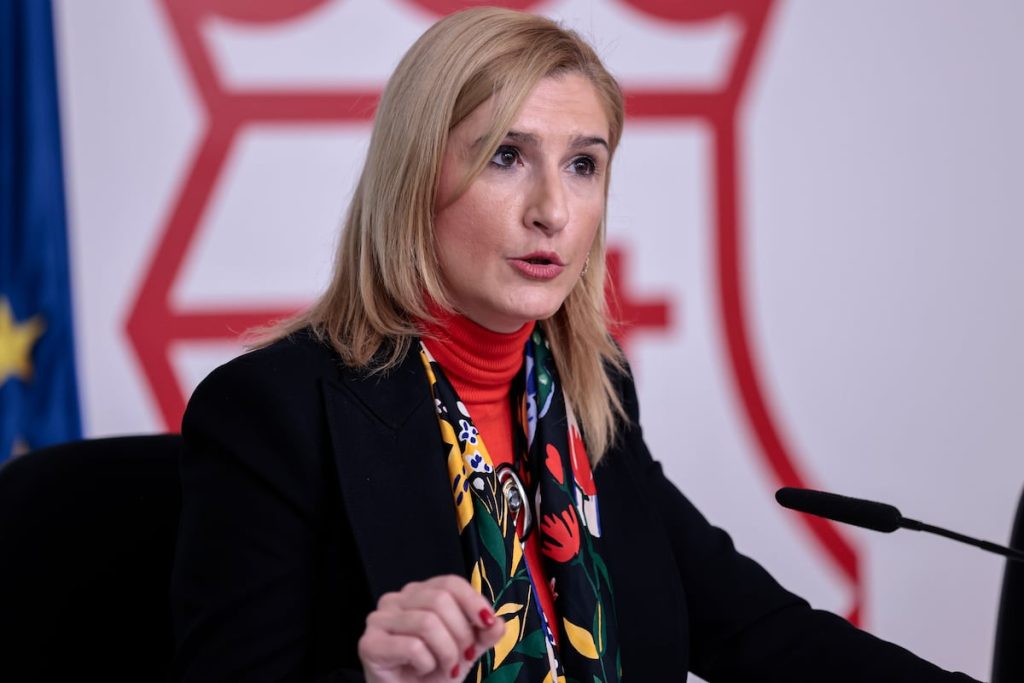Nuria Montes, the counselor of Innovation, Industry, Commerce, and Tourism of the Valencian Community (PP), made controversial statements on Friday regarding the natural disaster that has struck the region, with over 200 fatalities following the dana. Montes urged the families of the missing and deceased individuals to remain in their homes and not go to the Valencia Fair, the 1,300 square meter pavilion designated by the regional government to serve as a morgue. She stated, “We will not allow, we will not hand over bodies to families. Relatives will not be allowed access to the area where we have all the deceased individuals guarded, so they must wait for the mandatory call from the court and the delivery of the necessary documentation. The families, in the best place where they can await news of their relatives, is in their homes.”
Montes’ remarks quickly went viral on social media, prompting numerous criticisms and hundreds of messages. Former Mayor of Valencia, Joan Ribó, stated, “I am ashamed and angry that the counselor speaks in such terms, without any empathy towards the families of the victims.” Alicante’s socialist councilor, Ana Barceló, wrote, “The victims bother the counselor. You cannot be colder and less empathetic towards those who are suffering from the pain of loss.” The backlash against Montes’ comments highlighted the need for compassion and sensitivity in times of tragedy, as well as the importance of supporting grieving families.
The response to Montes’ statements underscored the broader issue of government officials’ communication during crises. Many criticized Montes for her lack of empathy and cold demeanor when addressing the families of the deceased. In times of natural disasters and emergencies, it is crucial for officials to communicate with sensitivity and compassion, offering support and reassurance to those who are affected. Montes’ approach highlighted the importance of effective communication strategies in ensuring that the needs of the community are met and that individuals feel heard and understood during times of crisis.
The controversy surrounding Montes’ comments also raised questions about the role of government officials in dealing with the aftermath of natural disasters. While it is essential for authorities to coordinate response efforts and ensure public safety, it is equally important for them to demonstrate empathy and understanding towards those who are directly impacted by the tragedy. The handling of such situations requires a delicate balance between logistical considerations and emotional support, with a focus on meeting the needs of the affected individuals and communities. Montes’ statements served as a reminder of the challenges that officials face in navigating the complexities of crisis management.
In the aftermath of the tragedy caused by the dana in the Valencian Community, the focus shifted to the need for community support and solidarity. As families mourned the loss of their loved ones and grappled with the aftermath of the disaster, there was a call for unity and compassion in the face of adversity. The outpouring of criticism towards Montes’ remarks revealed a deep-seated desire for empathy and understanding in times of crisis, as well as a recognition of the importance of coming together as a community to support one another. The tragedy served as a stark reminder of the fragility of life and the need to stand together in times of hardship.
In conclusion, Nuria Montes’ controversial statements regarding the handling of the aftermath of the dana in the Valencian Community sparked widespread criticism and highlighted the importance of compassion and empathy in times of crisis. As the community grappled with the loss of over 200 lives and the devastation caused by the natural disaster, there was a growing demand for sensitivity and support in addressing the needs of those affected. Montes’ comments served as a reminder of the complex challenges faced by government officials in crisis situations, and the critical role of communication in fostering understanding and unity. Ultimately, the tragedy underscored the resilience of the community and the need for solidarity in the face of adversity.















